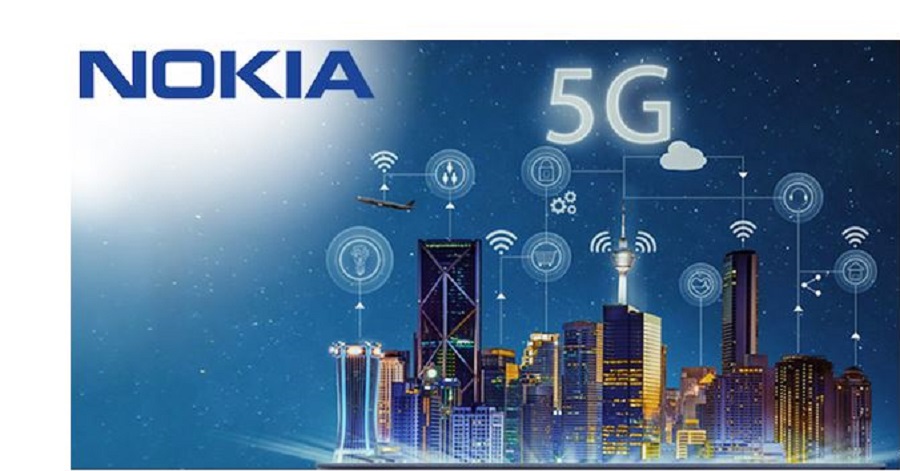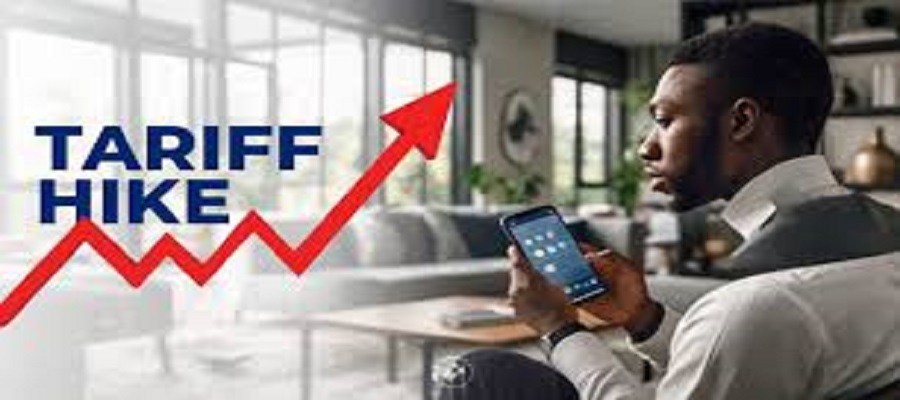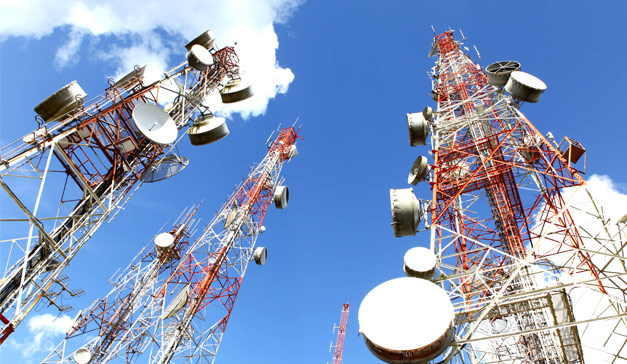Telecom
Instagram Tightens Teen Policy, Bans Under-18s from Receiving Messages from Strangers

Meta has rolled out a new safety update by banning under-18s from receiving Instagram messages from anyone they do not follow or are not connected to.

The social media giant said the change is part of its ongoing work to provide ‘age-appropriate experiences for teens’ across its apps.
The change extends an existing Meta policy which does not allow adults to message teenagers who do not follow them.
Meta said in a blog post: ‘Under this new default setting, teens can only be messaged or added to group chats by people they already follow or are connected to, helping teens and their parents feel even more confident that they won’t hear from people they don’t know in their DMs.
‘This default setting will apply to all teens under the age of 16 (or under 18 in certain countries). Those already on Instagram will see a notification at the top of their feed letting them know we’re making these changes to their message settings.
‘We’re also making these changes to teens’ default settings on Messenger, where under-16s (or under 18 in certain countries) will only receive messages from Facebook friends, or people they’re connected to through phone contacts, for example.’
In a further safety update, Meta said parents using its existing supervision tools will now have the ability to approve or deny their teenagers’ requests to change their default privacy and safety settings.
Until now, parents were just notified when their child made a change.
Meta said: ‘For example, if a teen using supervision tries to change their account from private to public, change their sensitive content control from ‘less’ to ‘standard’, or – now – tries to change their DM settings to hear from people they’re not already following or connected to, their parent will receive a notification prompting them to approve or deny the request.
‘As with all our parental supervision tools, this new feature is intended to help facilitate offline conversations between parents and their teens, as they navigate their online lives together and decide what’s best for them and their family.’
The update comes as social media platforms continue to face scrutiny over their impact on younger users.
On Wednesday, Prime Minister Rishi Sunak faced a call to consider banning social media and smartphones for under-16s.
Conservative MP Miriam Cates said there had been a ‘marked increase’ in poor teenage mental health since 2010 and called for stricter measures in response.
Speaking during Prime Minister’s Questions, Ms Cates said: ‘Since 2010, across the English-speaking world, there has been a marked increase in poor teen mental health, teen suicide attempts and children addicted to pornography.
‘The United Kingdom has a strong tradition of legislating to protect children from serious threats to their safety and welfare.
‘So does (the Prime Minister) agree with me that it’s time to consider banning social media and perhaps even smartphones for under-16s?’
Telecom
Nokia Unwraps 5G Gateway for Home Internet

Nokia has introduced the FastMile Gateway 4, a new 5G indoor gateway designed to deliver high-speed internet throughout the home, powered by Wi-Fi 7 technology.

A gateway is a device that connects to a 5G network and provides high-speed internet access to homes or businesses.
The disclosure was made in a statement by Nokia, which highlighted that the device features high-gain antennas and dual-band Wi-Fi 7 to optimise coverage and boost connection speeds.
The FastMile Gateway 4 supports four carrier aggregation and up to 300 MHz of bandwidth, helping operators improve network efficiency while ensuring seamless connectivity for users.
The new gateway is powered by Nokia’s Corteca software, which enables cloud-based Wi-Fi optimisation and supports industry-standard EasyMesh technology for better network management.
To simplify installation, the device comes with a mobile app that helps users identify the best location for setup.
With the FastMile Gateway 4, Nokia expands its 5G fixed wireless access portfolio, offering multiple Wi-Fi 7-enabled models to support different operator and consumer needs.
The launch underscores Nokia’s commitment to advancing 5G home connectivity, providing faster and more reliable internet solutions.
Shiv Putcha, director for Research and Consulting at GSMA Intelligence, stated, FWA has proven to be a spectacular hit in driving broadband access in the last mile around the world.
He said, “However, there are numerous end users, many with potentially unique requirements that need servicing. Nokia has the broadest portfolio today, with multiple FastMile gateway products that combine 5G FWA with dual-band WiFi 7 indoors.
“This, combined with Corteca management software, will help operators cater to multiple segments of demand.”
Dirk Verhaegen, general manager of Broadband Devices at Nokia, stated, “Using Fixed Wireless Access to connect end customers to the internet requires more than just one type of device.
“Our extensive FWA portfolio gives operators access to a wide range of Wi-Fi 7 devices tailored to meet their unique and diverse needs. Our portfolio is even stronger with the addition of the new FastMile Gateway 4, giving operators another power option to deliver fast, reliable FWA broadband to customers – no matter where they live.”
Telecom
Senate Urges FG, Telcos to Cut Data Cost

The senate has called on the federal government to take urgent action to address the rising cost of data services in the country.

This was sequel to a motion sponsored by Senator Asuquo Ekpenyong (APC, Cross River South) during plenary.
Ekpeyong warned that the surge in data costs was a major setback for young Nigerians who depend on the internet for their livelihoods.
He argued that many young people use digital platforms for freelancing, e-commerce, content creation, and software development, making affordable internet access crucial to their economic survival.
“Telecommunication providers in Nigeria have recently increased the cost of data services by as much as 200%. A move that has placed significant financial strain on millions of Nigerians, especially young people who rely on the internet for their livelihood,” he said.
“Young Nigerians have embraced the digital economy, leveraging the internet for various income-generating activities including freelancing and remote work, direct marketing and social media management, e-commerce, content creation on various platforms, online training, software development, web design, mobile app creation, content creation of various platforms, online education, etc.
“The senate notes that young Nigerians have embraced the digital economy, leveraging the internet for their livelihood, leaving them heavily dependent on mobile telecommunications companies for internet access, and that the sudden and substantial increase in data cost threatens their economic survival and limits access to critical digital services.
“The senate is further concerned that the reasons provided by telecom providers for the data price hike, including high operational costs of favourable exchanges, are untenable, and appears that instead of addressing the root causes of the high cost of doing business in Nigeria, the burden is being unfairly transferred to end-users.
“Senate is aware that the high cost of doing business in Nigeria is driven by multiple challenges, such as increased operational risk and insurance costs.
“The senate believes that urgent government intervention is required to ensure that affordable internet access remains available to all Nigerians, particularly to the young Nigerians who are at the backbone of Nigeria’s digital economy.
“The senate accordingly resolves to urge the federal government to engage with telecommunication providers to review the recent increase in data costs and ensure the pricing remains fair and affordable for all Nigerians.”
Telecommunications operators had increased the cost of data and voice services following the Nigerian Communications Commission (NCC) approval of a 50% tariff hike, implemented on February 11, 2025.
Contributing to the debate, senator Victor Umeh (LP, Anambra Central) described the motion as timely, lamenting that apart from the hike in cost of telecommunications services, there were also a hike in the cost of electricity tariff and DSTV subscription.
“Something needs to be done fast, to regulate the high increases. Citizens have no other way to seek redress,” Senator Umeh said.
Senator Sadiiq Sulaiman Umar (APC, Kwara North), also said, “It’s very important to regulate this social crisis.”
In its resolutions, the Senate also asked the federal government to provide an enabling environment for doing business, as well as address the avalanche of challenges threatening businesses in the country.
The Senate also asked the federal government to consider making provisions for free internet hubs for young people to enhance their socio-economic well-being.
Senate President Godswill Akpabio, who presided over the session said the resolutions if implemented would assist young entrepreneurs who use internet for various businesses to grow.
Telecom
MTN Group, Airtel Africa Agree to Network Sharing in Uganda and Nigeria

Driven to extend digital and financial inclusion across Africa, MTN Group and Airtel Africa have entered into agreements to share network infrastructure in Uganda and Nigeria, while ensuring compliance with local regulatory and statutory requirements.

These sharing agreements target improved network cost efficiencies, expanded coverage and the provision of enhanced mobile services to millions of customers, particularly those in remote and rural areas who do not yet fully enjoy the benefits of a modern connected life.
MTN Group President and Chief Executive Officer Ralph Mupita said operators on the continent were seeing sustained demand for data services: “As MTN, we are driven by the vision of delivering digital solutions that drive Africa’s progress.
We continue to see strong structural demand for digital and financial services across our markets. To meet this demand, we continue to invest in coverage and capacity to ensure high-quality connectivity for our customers.
That said, there are opportunities within regulatory frameworks for sharing resources to drive higher efficiencies and improve returns.”
Airtel Africa Chief Executive Officer Sunil Taldar said: “As we compete fiercely in the market on the strength of our brand, services and our offerings we are building common infrastructure, within the permissible regulatory framework, to provide a more robust and extensive digital highway to drive digital and financial inclusion at the same time avoiding duplication of expensive infrastructure to drive operational efficiencies and benefits for our customers.”
The initiative is part of a growing global trend toward network sharing. By collaborating, telecoms operators can explore innovative and pro-competitive solutions to improve service quality while managing costs more effectively.
The sharing of infrastructure has the potential to enable the delivery of world-class, reliable mobile services to more and more customers across Africa.
Following the conclusion of agreements in Uganda and Nigeria, MTN and Airtel Africa are exploring various opportunities in other markets, including Congo-Brazzaville, Rwanda and Zambia.
Among the types of agreements considered are RAN sharing and those aimed at establishing commercial and technical agreements for fibre infrastructure sharing and, if necessary, the construction of fibre networks.
MTN Group and Airtel Africa are dedicated to working with other mobile operators within the countries in which they have a presence to achieve the advantages of network sharing.
Throughout this process, the parties will continue to function as independent market entities and will compete freely in shared markets. This engagement does not preclude the parties from collaborating with other operators in any respective market.

 News2 days ago
News2 days agoPolice Arrest 4 Bank Staff over Alleged ₦270m Fraud, Money Laundering

 E-Financial2 days ago
E-Financial2 days agoUBA Grows Profit to ₦804Bn, Declares N3 Kobo Final Dividend

 E-Business2 days ago
E-Business2 days agoNIMC to Prosecute Nigerians Printing ‘NIN Cards’, Says Only Slip is Legal

 E-Business2 days ago
E-Business2 days agoUnleashing Nigeria’s Business Potential: The Cloud as Catalyst for Growth

 Telecom2 days ago
Telecom2 days agoOpen Access Fabrics Set to Drive Connectivity to Achieve a Digital Economy

 General News2 days ago
General News2 days agoAuthorities Seize 1842 Devices in African-Wide Cybercrime Crackdown

 Telecom2 days ago
Telecom2 days agoMTN Nigeria and Pan-Atlantic University Invite Media Practitioners for 4th Media Innovation Programme

 E-Financial2 days ago
E-Financial2 days agoEnza Raises $6.75m Seed Funding to Boost Embedded Payment Solutions Across Africa



























